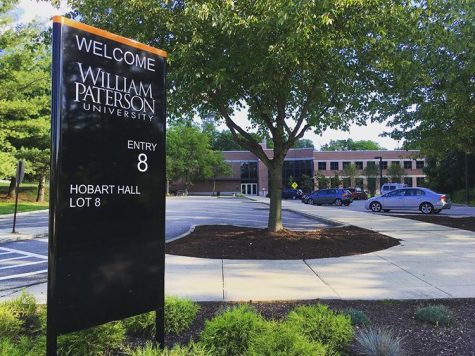Comm students surveyed about interest in Hobart food service improvement
December 5, 2017

Hobart Hall
The long-standing lacking food service complaint against Hobart Hall may finally be making progress because of new department leadership, and the new communication student council.
All communication majors received an email Nov. 27 from Communication Department Chair Dr. Rob Quicke encouraging them to take an online survey about if they would want improved food service in Hobart Hall.
“I thought if you’re going to gauge any kind of interest … let’s have some proper mechanism by which we can record and log the data because data is hard science,” Quicke said.
After the survey’s Dec. 11 deadline Quicke will review the results, and if a majority of communication majors want better food service he will bring the data to William Paterson University’s administration to attempt to meet the needs of the students.
This push was started by the newly formed Communication Student Council which represents different parts of the communication program and serves to advise department administrators about complaints and possible improvements.
One of the survey questions is “If, to make a food service possible, Communication students had to pay a $20 subsidy fee per year ($10 per semester) – would you pay it?”
Quicke does not believe a subsidy fee would be necessary though. Currently, no students at WPU pay a subsidy fee for food service according to hospitality services.
Senior Chris Lynch, who describes Hobart Hall’s current food service situation as “non-existent,” supports the move for improvement.
“You’ve got a couple of vending machines with frozen things that you can microwave, but that is only if you’re alright with prepackaged things that are full of preservatives and sodium and don’t offer any kind of nutritional value,” Lynch said. “You can’t even get hot water for a cup of tea around here. There is also the candy machine and the soda machines but that does not a meal make.”
Lynch also believes the communication department is somewhat forgotten by university administration when it comes to building improvement.
“With all these buildings they’re redoing the fact that they can’t even pop a little something in for food services here kind of makes it seem as though the communication department is much lower on the totem pole than a lot of the other parts of the university,” he said.
Improved food services could also improve Hobart Hall’s social atmosphere because many students leave the hall after their classes to go eat on or off campus.
“I feel like nobody is ever here, and if you are here you’re a communication major, and then you’re just there sitting on your computer because there is no social place,” said Jessica D’Anna, communication major.
Besides the students benefiting from better food services so would the faculty and staff who work in the hall.
Communication Assistant Professor Dr. Nicholas Hirshon often faces the dilemma, like many of his students do, of whether to continue working or walk across campus or drive to nearby establishments to eat.
“Especially during the winter it would be such a relief to not have to leave this building, and because of our location on campus we’re so far away from any place else,” Hirshon said.
In addition Hirshon, who organizes the Reality Check! speaker series believes improved food service would better the communication department’s image to university guests who may want to get a bite to eat before an event.
Quicke is confident this attempt for Hobart Hall food services could succeed where others have failed because he will bring hard data to WPU administrators about what his students want.
Presently there are “no plans to add food services (other than vending) to any of the older academic buildings,” said Tony Cavotto, hospitality services director.